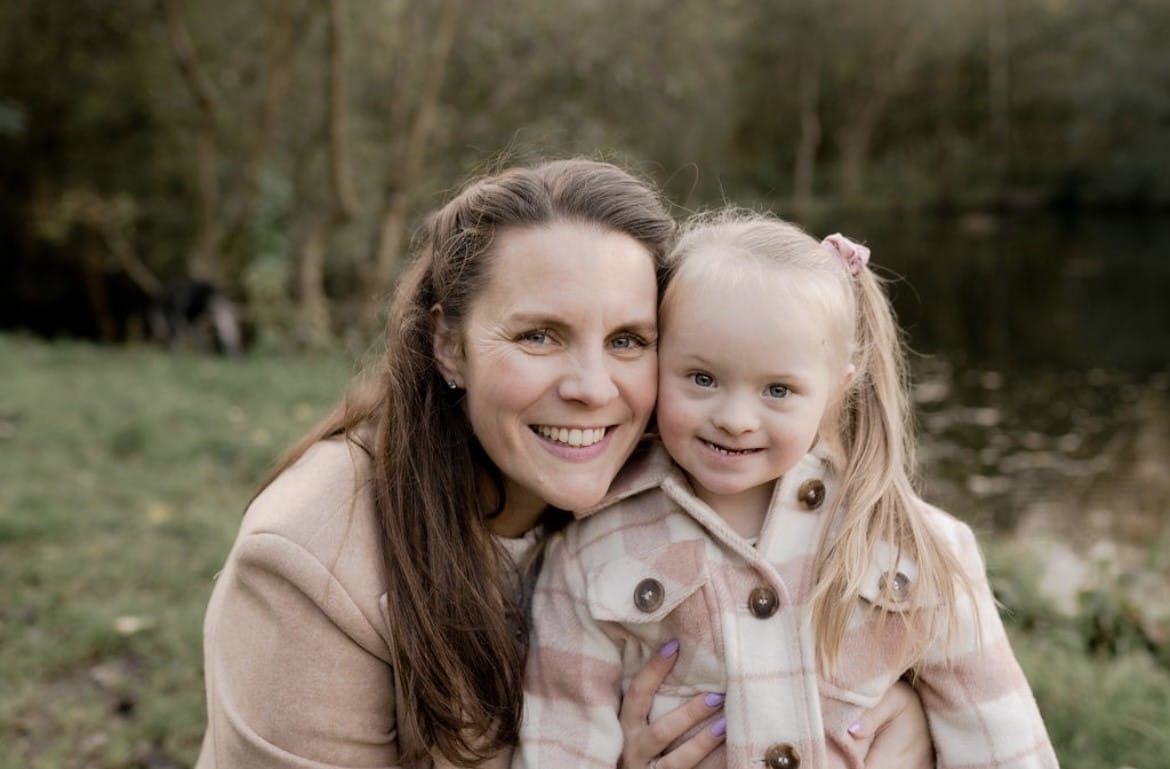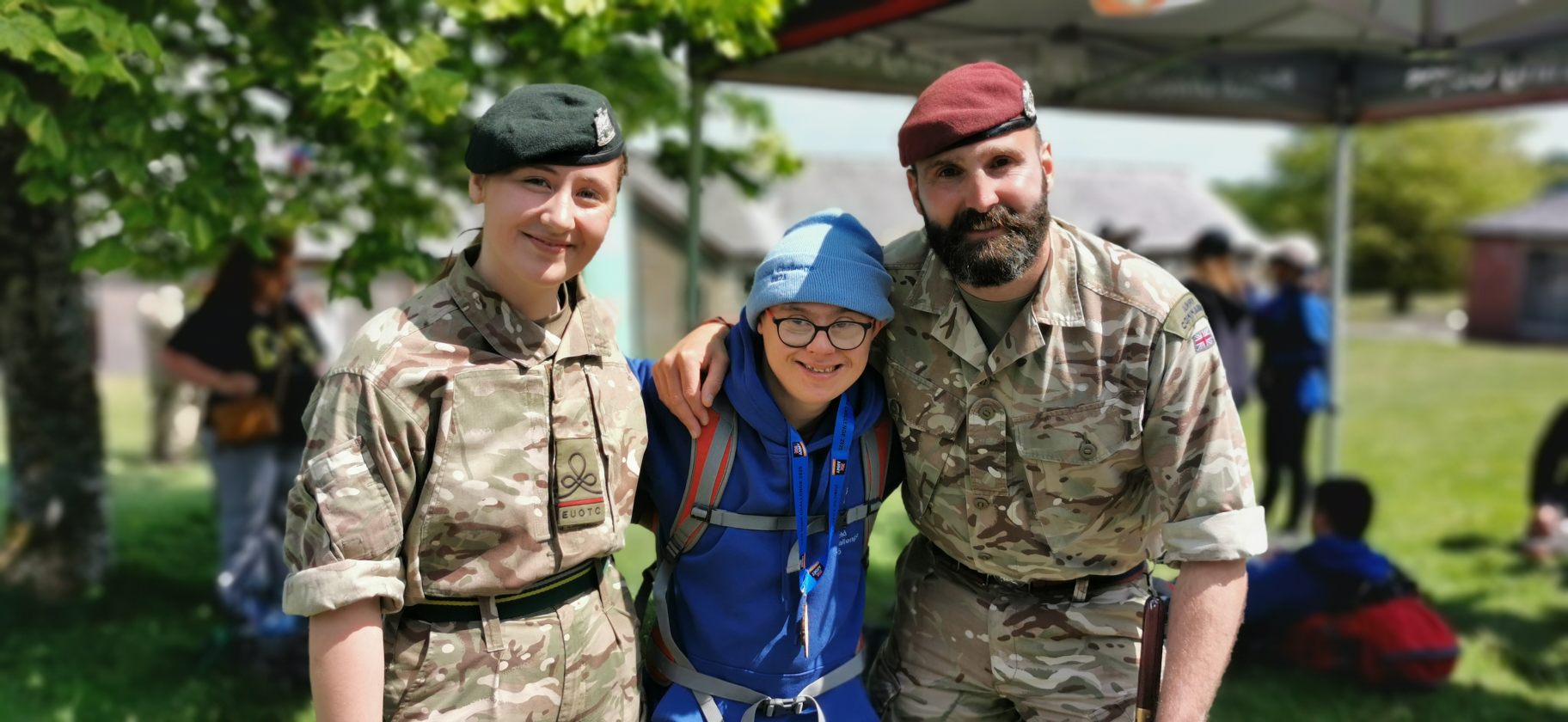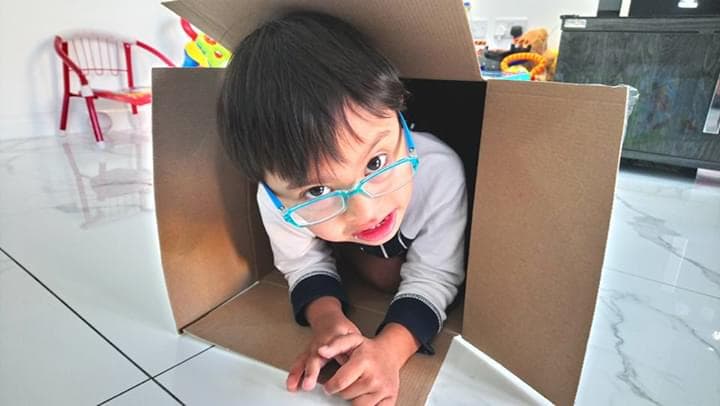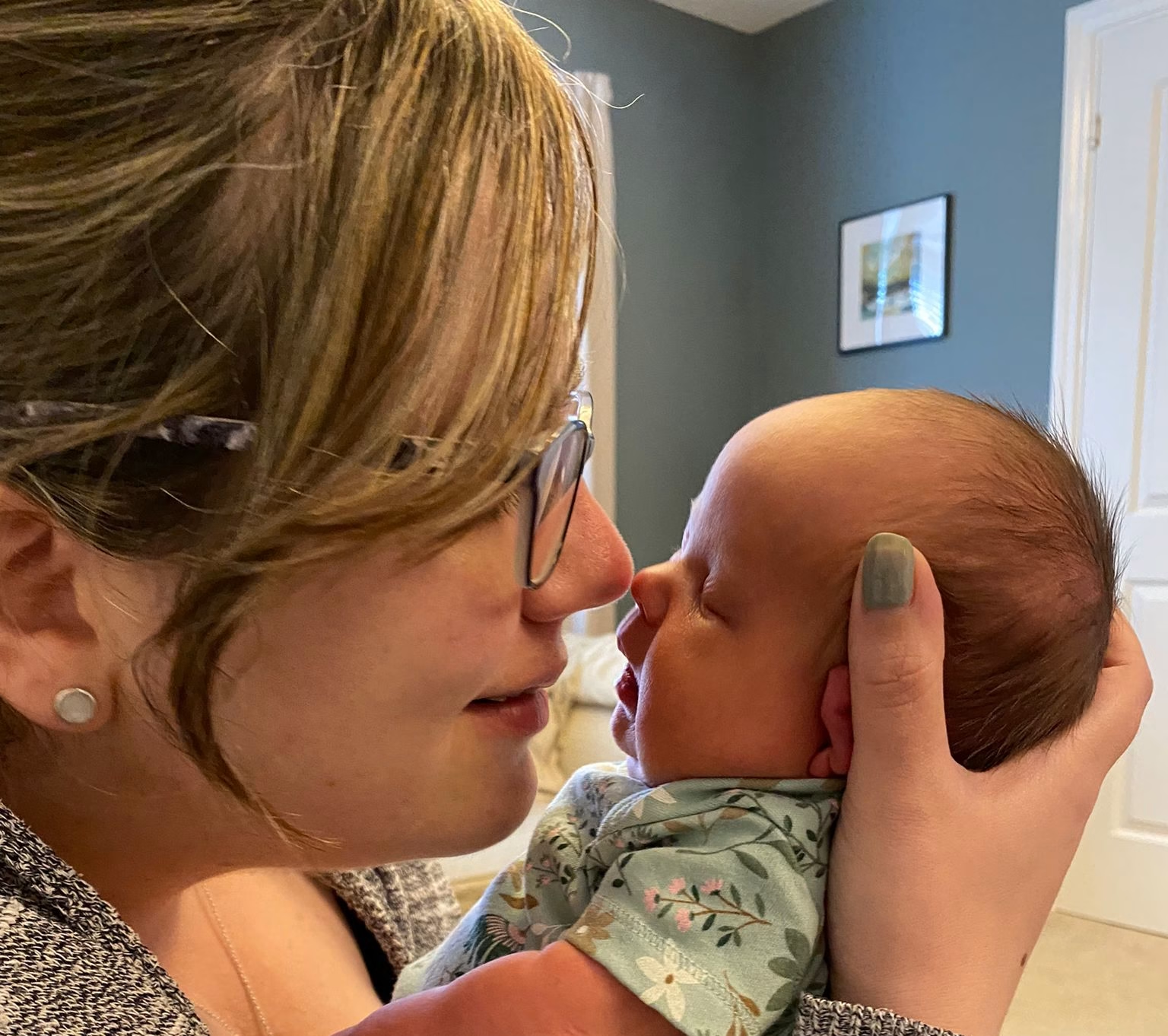The complete guide to EHCPs for children with Down syndrome: how to apply and what to expect
- by Justine Cornforth
Getting the right educational support for your child with Down syndrome can feel overwhelming, but an Education Health Care Plan (EHCP) is a powerful tool that can transform your child’s educational experience. This comprehensive guide will walk you through everything you need to know about applying for an EHCP, from understanding the process to securing the best outcomes for your child.
What is an EHCP and why does my child with Down syndrome need one?
An Education Health Care Plan (EHCP) is a legal document that describes your child’s special educational needs and the support they must receive. For children with Down syndrome, an EHCP is often essential because it:
- Specifies what extra help your child needs in school above and beyond what the other children need
- Is legally binding, so that the extra provision specified must be provided
- Provides legal protection for your child’s educational rights
- Helps schools understand your child’s unique needs
- Covers education, health, and social care requirements
The reality is that most children with Down syndrome will need more support. An EHCP will ensure that once your child is in school, that the LA contributes towards any extra costs of the provision or training that your child needs.
When should you apply for an EHCP?
Critical timing advice: Apply for an EHCP assessment approximately a year before your child starts school (ideally late spring / early summer). This gives you time to:
- Ensure that your child is referred into the professionals that you require reports from
- Navigate the 20-week legal process (which includes having assessments done)
- Secure your preferred school placement
- Inform school so that they can recruit staff and think about training and transition
- Avoid delays that could affect your child’s school start date
Important: Do not start too soon as an EHCP may not have much value in nursery. Never apply for an EHCP assessment after the first week of July, as schools and nurseries will be closed for summer holidays, making it impossible to gather required information.
Before you apply: essential preparation
Getting the right professionals involved
The EHCP process relies heavily on professional reports. If you don’t have the right professionals providing input, your EHCP will have gaps. Here’s who you need to consider involving before starting the process:
Essential professionals for children with Down syndrome:
Speech and Language Therapy (SaLT)
- Most children with DS will be helped by some SLT input. Even if your child’s speech seems good, SaLT can advise on listening, attention, and concentration
- Critical for communication support in school
Occupational Therapy (OT)
- Probably the most useful service for school
- Advises on seating, tables, writing implements, eating, drinking, dressing, toileting and sensory input
Physiotherapy
- Important for documenting hypotonia (low muscle tone) and hypermobility (flexible joints)
- If your child is not walking or standing independently then they can advise on exercises and recommend equipment
The local authority will arrange for the following professionals to be involved:
Paediatrician
- Provides overall health overview
- Documents medical conditions that affect learning
- Essential for health sections of the EHCP
Educational Psychologist
- Assesses learning needs and cognitive profile
- Provides recommendations for teaching approaches
Hearing Impaired Team – If your child has a hearing impairment
- They will make recommendations about where your child is sat in class and any environmental adjustments
- They will train staff to care for equipment and understand how it works
- Practice hearing tests with your child
Visual Impaired Team – If your child wears glasses or has visual impairment
- Make environmental recommendations
- Advise on font size, colour contrast, etc.
- Practice for visual tests so the child knows the pictures, words and signs.
- May refer onto the Habilitation team who can assess the school environment.
Additional Specialists to Consider:
- Audiology – Most children with Down syndrome have hearing issues
- Orthoptist/Ophthalmology – Vision acuity and other conditions are common
- Down Syndrome Education Expert – Someone from a local DS education group with specific approaches like See and Learn or Numicon
- Incontinence Team – usually from the age of 4 or 5 if required
- Cardiology – If heart conditions are present
- Orthotics
- Wheelchair services
- ENT, Sleep Consultant – if needed
Referrals and waiting times
Start referrals early – you need to do this via your GP. Find out waiting times for each service, as some may take months to arrange appointments.
ith Down syndrome.

The EHCP Assessment Process: Step-by-Step Timeline
Week 0: Making Your Request
You have the legal right to request an EHCP assessment. While schools can also request assessments, it’s recommended that parents make the request themselves so you know the exact start date.
How to apply:
- Write to your Local Authority’s Director of Children’s Services
- Include basic information about your child’s needs
- Keep a copy and consider using recorded delivery
- Check your LA’s Local Offer website for specific forms
Week 1: Acknowledgment
You should receive acknowledgment within a couple of weeks. If not, follow up to ensure your request was received.
Week 6: Decision Point
By week 6, the LA must decide whether to proceed with a full assessment. This is based on initial information gathered from professionals and your child’s nursery or school.
What to do at Week 6:
- Email the LA with contact details for all involved professionals
- Submit any recent reports you have
- Request that information is sought from all relevant professionals
- Mention any outstanding referrals
Week 6-12: The Assessment Phase
Parents’ contribution: You’ll be asked to complete Section A of the EHCP, which covers your family’s views and your child’s aspirations.
Key tips for your contribution:
- Don’t be restricted by form boxes – write fully
- Include family setup and important relationships
- Describe your child’s strengths and interests
- Detail areas of concern or difficulty
- Include information about feeding, sleeping, mobility, safety, and toileting
Add long-term aspirations such as:
- Being educated to the highest level possible
- Having meaningful employment
- Living independently
- Being part of a community
- Having friends and relationships
- Traveling and participating in activities
Week 12-13: Professional Reports Due
All professional reports must be submitted within 6 weeks of the assessment request.
Week 14: Draft EHCP
You should receive the draft EHCP if the LA agrees to issue a plan. All professional reports should be included – check carefully and chase any missing reports.
Week 16: Final Decision
The LA must inform you if they’re not issuing a plan by week 16.
Responding to Your Draft EHCP
When you receive the draft EHCP, you have 15 days to respond. This is crucial – make note of the date and keep the envelope with the postmark.
Your rights during this period:
- Request changes to the draft EHCP
- Ask for a meeting with the LA (they must make officers available)
- Express your school preference
- Request a personal budget
Template response to secure your rights:
Dear Case Officer,
Thank you for sending the draft EHCP for my child [Name, DOB]. I am seeking advice and will be making parental representations shortly. I would like:
- For the local authority not to finalize the EHCP on Day 15 pending my parental representations, in line with SEND Code of Practice 9.77.
- To request a meeting with the local authority to discuss the proposed changes.
Please let me know your available dates after the 15-day period.
Yours faithfully,
[Your name]
What Should Be in Your Child’s EHCP?
An EHCP has specific sections that must be completed properly:
Section A: views and aspirations
- Your family’s story and your child’s perspective
- Likes, dislikes, and communication methods
- Long-term aspirations and goals
Section B: Special Educational Needs
Must include the typical learning profile for Down syndrome:
- Speech and language challenges
- Visual processing strengths
- Working memory and concentration difficulties
- Sensory issues (hearing/visual)
- Short attention span
- Difficulty with transitions
- Social interaction needs
Section C: Health Needs
Health needs related to Down syndrome:
- Heart conditions
- Thyroid issues
- Hearing problems
- Visual impairment
- Immune system concerns
- Bowel and continence issues
Section D: Social Care Needs
- Challenges accessing social activities
- Safety concerns and supervision needs
- Family support requirements
- Independence development needs
Section E: Outcomes
SMART outcomes (Specific, Measurable, Achievable, Realistic, Time-bound) such as:
- “By end of Year 2, [child] will recognize numbers 1-10 and use them in practical situations”
- “By end of Year 6, [child] will communicate basic needs using a combination of speech, signs, and symbols”
Section F: Special Educational Provision
This is the most important section – it’s legally binding and details exactly what support your child will receive:
- Must be specific and quantified: “15 minutes daily speech therapy program delivered by trained staff” not “regular speech therapy”
- Must match every need in Section B
- Include staffing, teaching methods, and resources
- Avoid vague phrases like “access to” or “opportunities for”
Sections G & H: Health and Social Care Provision
- Health provision (paediatrician monitoring, therapy programs)
- Social care provision (family support, respite care, community access)
Choosing the Right School
Section I names your child’s school. This is left blank in the draft EHCP so you can express your preference.
Your rights to school choice
You have the right to express a preference, and the LA must name your preferred school if it:
- Is suitable for your child’s age, ability, and needs
- Doesn’t interfere with efficient education of other children
- Is not an inefficient use of resources
School visit tips:
- Look for a positive “can do” attitude
- Check their experience with Down syndrome
- Assess the physical environment
- Meet key staff members
- Ask about their SEN support approaches
Start with your nearest schools as LAs consider distance from home. Work outwards if needed.
Common challenges and how to address them
If your assessment request is refused
- You have the right to mediation and appeal
- Get the refusal in writing
- Seek advice from your local Information Advice and Support Service
- Consider what additional evidence might be needed
If the draft EHCP is inadequate
- Make detailed representations highlighting gaps
- Request a meeting with the LA
- Seek independent advice
- Consider involving an EHCP specialist
Private reports: pros and cons
- Avoid private reports initially – see what the LA provides first
- Time private reports carefully – they must be current for any tribunal
- Consider long-term maintenance – how will private therapy continue?
- School placement comes first – don’t delay school entry for a perfect EHCP
Special Considerations
Summer Born Children
If your child was born between April 1st and August 31st, they can start school a year later. Ensure you have agreement from schools and the LA before or during the EHCP process.
Part-Time School
Children under compulsory school age can attend part-time. This needs Head Teacher agreement.
Annual Reviews
Once your child has an EHCP, it must be reviewed annually. This is your opportunity to:
- Update needs and provision
- Plan for transitions
- Ensure the plan remains relevant
Getting support through the process
Down Syndrome UK EHCP Support Service
- Online support groups
- 1:1 drop-in sessions
- Detailed draft review service
- Expert guidance from Down syndrome specialists
Other Support Available
- Local Information Advice and Support Services (IASS)
- Educational solicitors
- Parent support groups
- Online forums and communities
Key Takeaways for Success
- Start early – begin the process at least a year before school
- Get the right professionals involved before applying
- Be specific in all requests and responses
- Know your rights and use them
- Keep detailed records of all communications
- Seek support – you don’t have to do this alone
- Focus on outcomes – what do you want your child to achieve?
Timeline Summary
- Week 0: Submit EHCP request
- Week 6: LA decision on assessment + submit professional contacts
- Week 6-12: Complete parent contribution
- Week 14: Receive draft EHCP
- Week 16: Final decision if no plan issued
- Week 18: School consultations complete
- Week 20: Final EHCP issued
Remember: The EHCP process can extend to 26 weeks if it crosses summer holidays.
Next Steps
If you’re ready to start the EHCP process for your child with Down syndrome:
- Contact your GP to discuss referrals to essential professionals
- Visit your LA’s Local Offer website to understand their specific processes
- Join Down Syndrome UK’s EHCP Support Service for expert guidance
- Start documenting your child’s needs and gathering existing reports
- Research potential schools in your area
An EHCP can be transformative for your child’s education, providing the legal framework for them to receive the support they need to thrive. While the process can seem daunting, with proper preparation and support, you can secure an EHCP that truly serves your child’s best interests.
Remember: You are your child’s best advocate. Trust your instincts, ask questions, and don’t be afraid to push for what your child needs. Every child with Down syndrome deserves the opportunity to reach their full potential, and an EHCP is often the key to making that happen.
For more support with your EHCP journey, contact Down Syndrome UK at info@downsyndromeuk.co.uk or 0330 111 2121, or join our EHCP Support Service for expert guidance tailored to families with children with Down Syndrome.








